Selecting the right serum for your skin type is the first step in discovering the secret of glowing and healthy skin. It’s simple to get confused and overwhelmed by the abundance of options available. Fear not, we are here to help you. We have put up a guide to assist you in navigating this maze and finding the ideal serum that will do wonders for your skin. Prepare to set out on a mission to discover the elixir that will unleash your skin’s full potential. So let’s get started and learn how to choose the perfect serum to sparkle your skin with joy. Head on and grab the perfect serum for your skin type!
Why Is It Important To Use The Right Serum For Your Skin Type?
We cannot emphasize enough when we say using the right serum is one of the most important steps in your pursuit of healthy, glowing skin. A carefully chosen serum could be the savior for your skin, thanks to its concentrated active ingredients and focused effects. Choosing the ideal serum is a key first step to accomplishing all your goals. Whether you want to address certain issues or maintain overall skin health, this is what you need to pay attention to.
Here are a few reasons why you should use a serum
- Serums can enhance the texture of your skin by accelerating cell renewal and enhancing collagen synthesis. This can assist to refine and rejuvenate the appearance of pores, smooth out rough or uneven skin, and improve the appearance of your complexion.
- Antioxidants like vitamin C, E, or green tea extract are particularly abundant in some serums. These antioxidants aid in the elimination of free radicals, unstable chemicals that can harm the skin and fasten aging. Antioxidant-rich serums can add a layer of defense against environmental stresses.
- Serums are adaptable and simple to work into your regular skincare regimen. They can be used in conjunction with other products like cleansers, toners, or moisturizers to target particular issues.
- Serums often have more active chemicals than other skincare products like moisturizers or cleansers. This implies that you can use fewer products to get noticeable results.
- The typical texture of serums is light and fluid, allowing for fast absorption into the skin. They won’t leave a greasy or heavy residue, making them suited for all skin types, especially oily or mixed skin.
- Hyaluronic acid, glycerin, and ceramides are among the moisturizing components in many serums that contribute to increased skin moisture. These substances draw in and hold onto moisture, hydrating the skin’s deeper layers and enhancing its overall moisture balance.
List Of Different Types Of Serum For Your Skin
Serums have become vital to skincare routines, offering particular advantages for specific skin concerns. With so many options available, it’s critical to comprehend the many types of serums and their advantages to choose the one that best meets your skin’s needs. Here is a list, according to your skin type, to get the best results. These serums range from hydrating elixirs to brightening potions for your skin:
Aging Skin

Retinol Serum: This serum improves the texture and tone of the skin by stimulating collagen production, reducing wrinkles, and reducing wrinkle depth. Example – Sunday Riley A+ High-Dose Retinoid Serum.
Vitamin C Serum: Vitamin C brightens the skin, fades dark spots, and boosts collagen synthesis. Example – Drunk Elephant C-Firma Day Serum.
Peptide Serum: Peptides help firm and tighten the skin by promoting collagen production. Example – The Ordinary Buffet Peptide Serum.
Hyaluronic Acid Serum: Hyaluronic acid hydrates and plumps the skin, reducing the appearance of fine lines. Example – PCA Skin Hyaluronic Acid Boosting Serum.
Collagen-Boosting Serum: These serums contain peptides and growth factors that stimulate collagen production. Example – SkinMedica TNS Essential Serum.
Dull Skin:
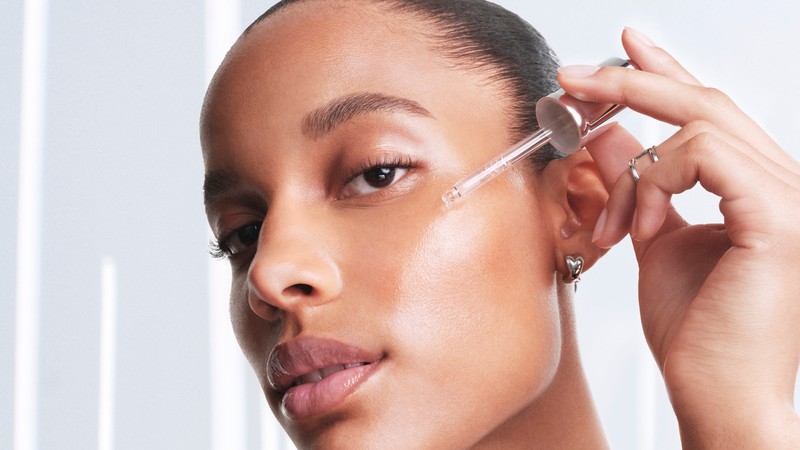
Vitamin C Serum: Vitamin C brightens the complexion, evens out skin tone, and provides antioxidant protection. Example – SkinCeuticals C E Ferulic Serum.
AHA/BHA Serum: AHAs (such as glycolic acid) and BHAs (such as salicylic acid) exfoliate dead skin cells, revealing a brighter complexion. Example – Paula’s Choice Skin Perfecting 8% AHA Gel Exfoliant.
Hyaluronic Acid Serum: Hyaluronic acid hydrates and revitalizes dull, dehydrated skin. Example – The Ordinary Hyaluronic Acid 2% + B5.
Oily Skin:
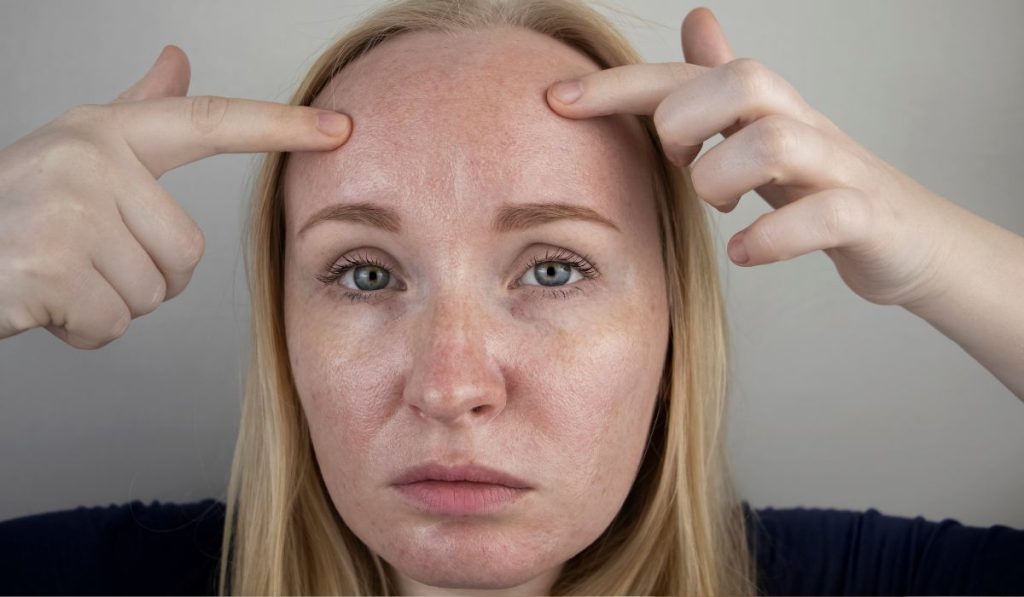
Niacinamide Serum: Niacinamide reduces acne breakouts, minimizes pore appearance, and regulates oil production. Example – Paula’s Choice 10% Niacinamide Booster.
Salicylic Acid Serum: Salicylic acid exfoliates the skin, unclogs pores, and reduces sebum production. Example – COSRX BHA Blackhead Power Liquid.
Lightweight Hydrating Serum: These serums provide hydration without adding excess oil to the skin. Example – Neutrogena Hydro Boost Hydrating Serum.
Acne-Prone Skin:

Salicylic Acid Serum: Salicylic acid penetrates pores, exfoliates, and helps reduce acne breakouts. Example – The Inkey List Salicylic Acid Acne + Pore Cleanser.
Tea Tree Oil Serum: Tea tree oil has antimicrobial properties that can help combat acne-causing bacteria. Example – Paula’s Choice Clear Acne Extra Strength Exfoliating Solution.
Calming Serum: Calming serums with soothing ingredients like aloe vera or chamomile can reduce inflammation and redness associated with acne. Example – “La Roche-Posay Effaclar Ultra Concentrated Serum.
Dry Skin:
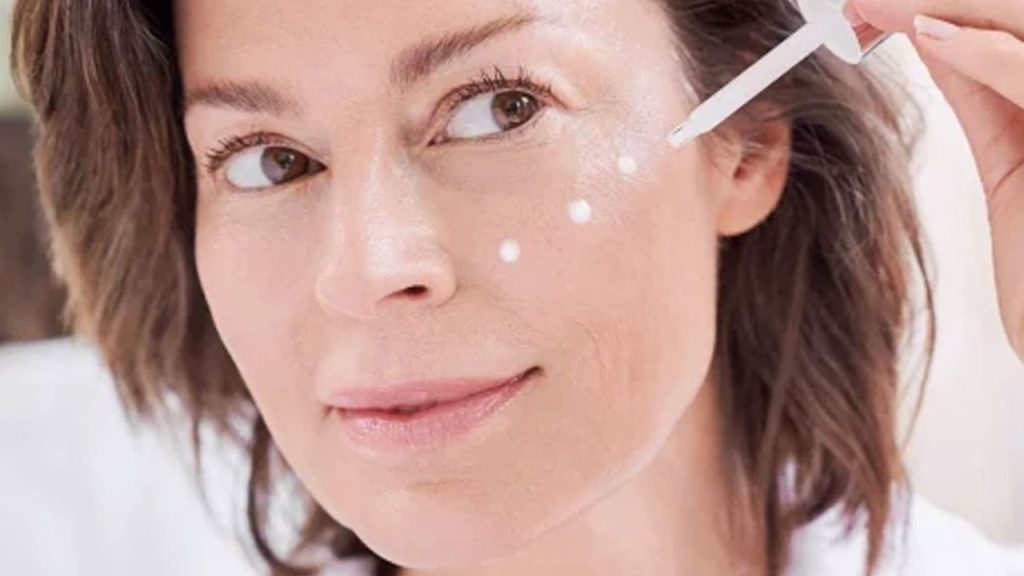
Hyaluronic Acid Serum: Hyaluronic acid hydrates and retains moisture in the skin, combating dryness. Example – The Ordinary Hyaluronic Acid 2% + B5.
Ceramide Serum: Ceramides strengthen the skin barrier, lock in moisture, and improve hydration. Example – CeraVe Hydrating Hyaluronic Acid Serum.
Oil-based Serum: Oil-based serums, such as those with argan oil or rosehip oil, nourish and replenish dry skin. Example – Josie Maran 100% Pure Argan Oil.
Combination Skin:

Lightweight Hydrating Serum: These serums provide balanced hydration without adding excess oil to oily areas. Example – Paula’s Choice Hyaluronic Acid Booster.
Niacinamide Serum: Niacinamide regulates oil production and helps maintain a balanced complexion. Example – The Inkey List Niacinamide Oil Control Serum.
Multi-Tasking Serum: These serums address multiple concerns, such as hydration, brightness, and pore refinement. Example – Drunk Elephant B-Hydra Intensive Hydration Serum.
Sensitive Skin:
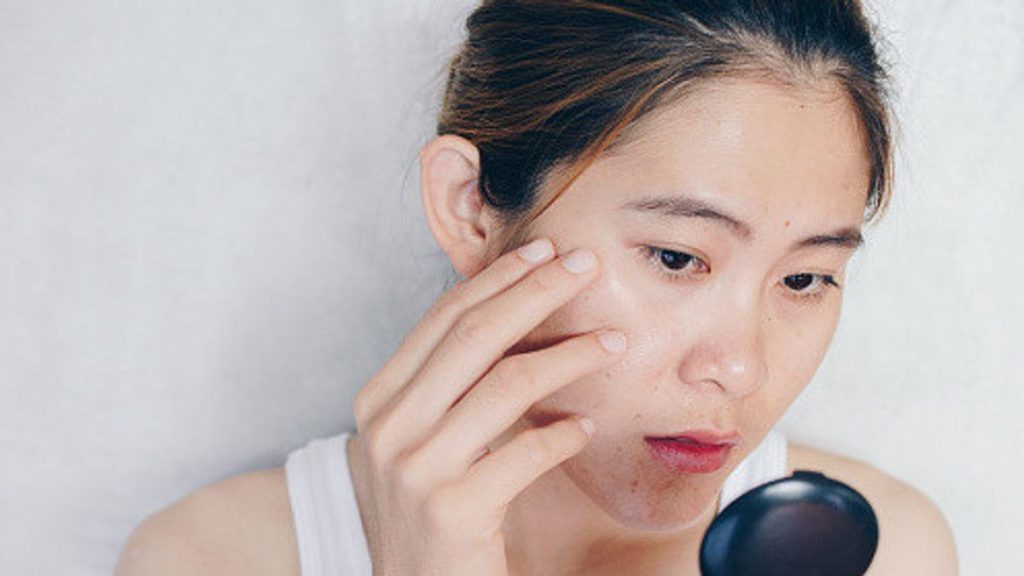
Calming Serum: Calming serums with soothing ingredients like chamomile or aloe vera can reduce redness and sensitivity. Example – La Roche-Posay Toleriane Sensitive Fluide.
Hyaluronic Acid Serum: Hyaluronic acid provides gentle hydration without causing further irritation. Example – COSRX Hyaluronic Acid Hydra Power Essence.
Fragrance-Free and Hypoallergenic Serums: These serums minimize the risk of allergic reactions and sensitivities. Example – Cetaphil Daily Hydrating Lotion.
What Are The Most Important Ingredients You Should Look For In A Serum?
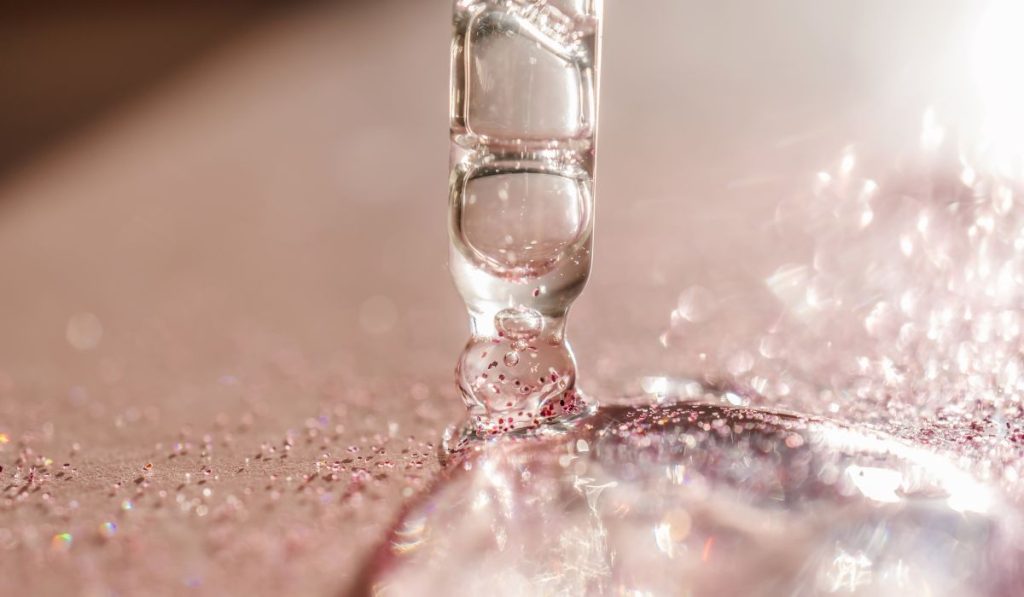
When selecting a serum, it’s critical to consider the ingredients and their unique benefits. Here are some crucial elements to look for in a serum. While the optimum ingredients may change depending on your skin type and concerns, here is a brief overview.
- Hyaluronic acid, well-known for its moisture-retentive solid abilities, draws and holds moisture, giving rise to plumper and more moisturized skin.
- Vitamin C, a potent antioxidant, improves skin brightness, lightens dark spots, and evens skin tone. Additionally, it increases collagen synthesis, which lessens the visibility of wrinkles and fine lines.
- Retinol, a vitamin A derivative, is well known for having anti-aging benefits. It enhances skin texture and tone, encourages cell turnover, and lessens the visibility of wrinkles. This multipurpose component minimizes pores, controls oil production, evens out skin tone, and enhances the skin barrier. Additionally, it has anti-inflammatory qualities, making it appropriate for sensitive skin.
- Peptides are chains of amino acids that can increase the creation of collagen, giving skin a firmer and more youthful appearance. They also aid in lessening the visibility of wrinkles and fine lines.
- The lipid molecules strengthen the skin barrier, enhance moisture retention, and provide defense against external aggressors. For those with sensitive and dry skin types, ceramides are especially advantageous.
- For the best protection against free radicals, environmental harm, and early aging of the skin, look for antioxidants like green tea extract, vitamin E, or resveratrol.
- Glycolic, lactic, and salicylic acids are AHAs and BHAs that can exfoliate the skin, clear clogged pores, and enhance skin texture. They are advantageous for treating acne.
FAQs [Frequently Asked Questions And Answers]
Q: How do I determine my skin type?
A: Choosing the best serum depends on knowing your skin type. There are typically four varieties of skin: normal, combination, oily, and dry. Dry skin lacks moisture, whereas oily skin produces excessive sebum. Normal skin is well-balanced with no serious problems, while combination skin has both oily and dry patches.
Q: Can I use multiple serums at once?
A: Adding one serum at a time to your skincare regimen is typically advised to gauge how your skin will respond. But once you know which serums are adequate for your skin, you can layer them according to your requirements. Start using the thinnest serum consistency, then move on to thicker serums. Just be careful not to overdo it with the active components, as this could irritate your skin.
Q: Should I consider my age when choosing a serum?
A: Because our skin’s needs alter as we age, age can be a consideration when choosing a serum. Anti-aging components like antioxidants or peptides promoting collagen may benefit mature skin. However, age alone shouldn’t be the only factor in choosing a serum because individual characteristics and skin disorders can vary.
Q: Are there any ingredients to avoid?
A: Some substances may irritate some skin types or not be appropriate for them. Some people may become sensitive to fragrances, alcohol, and certain acids (such as salicylic or glycolic acid). Before adding a new serum to your regimen, it is best to review the ingredient list and, if practical, perform a patch test.
Final Words
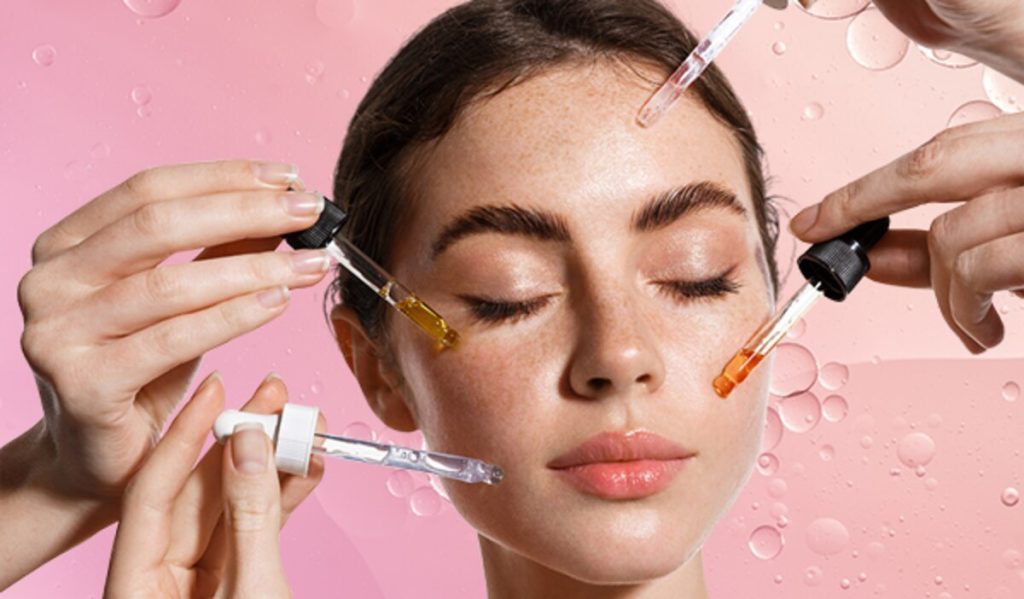
Finding the ideal serum for your skin type is like unearthing a hidden treasure in the wide skincare world. With each drop, it develops into a potent elixir that unlocks your skin’s true potential and reveals a beauty that is exclusively yours. So explore the world of serums, discover their miracles, and choose the one that speaks to your skin’s needs from our long list. The appropriate serum in your collection will give you the self-assurance to showcase your skin with pride, allowing its bright glow to tell a captivating tale of self-love and self-care. The world is waiting to be dazzled by the attraction of your gorgeous and well-nourished skin. So choose the right serum for your skin type and flaunt your beauty!
